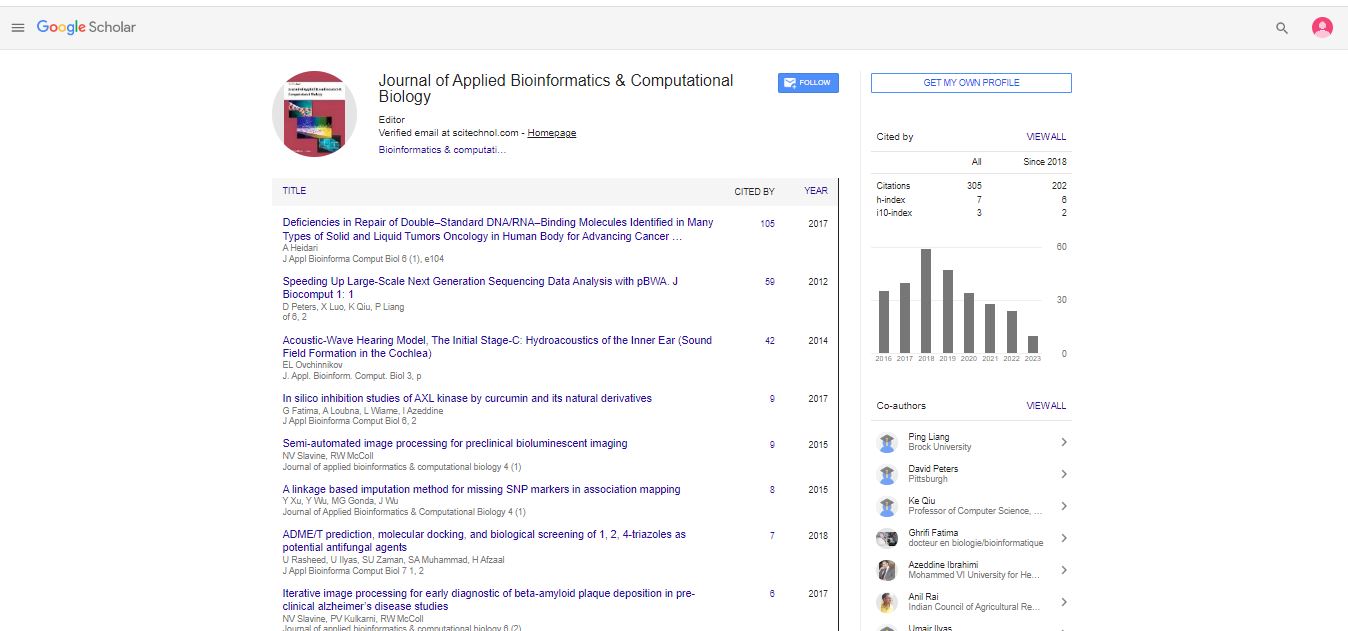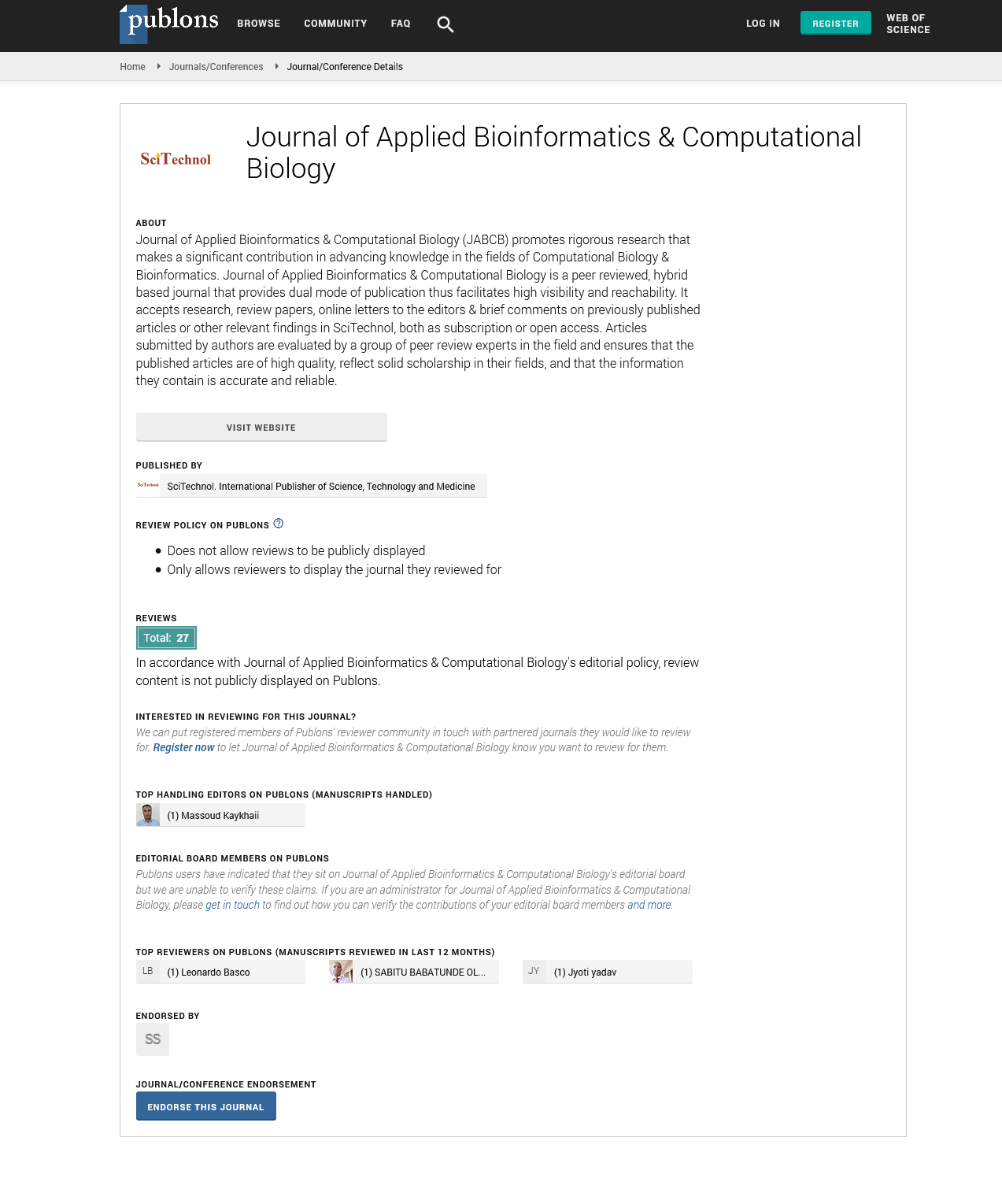Characteristics of an antigen-adjuvant immunological complex in an experimental vaccine formulation
Maria de Fatima Simao Juca Cri, Gabriela M Pereira, Elaine OR Viana, Marilia J da Silva, Bernadete P da Silva and Jose P Parente
IPPN Federal University of Rio de Janeiro, Brazil
: J Appl Bioinforma Comput Biol
Abstract
Statement: The formulation of effective vaccines generally requires adjuvants to stimulate an appropriate immune response. Adjuvants are usually defined as compounds that can increase or modulate the immunogenicity of an antigen. According to the literature, saponins are shown to possess several physiological properties, mainly the capacity for alteration of membrane permeability. These compounds have been reported to possess therapeutic potential for immune system modulation. Because the observation that certain saponins cause substantial enhancement of immune responses when given together with an antigen in a vaccine, their use as adjuvants received special attention. The present study is concerned with the investigation of molecular characteristics and structural aspects of an antigen-adjuvant complex originated from an experimental vaccine formulation. Methodology: A commercial extract of Quillaja saponaria was fractionated by chromatographic techniques to afford a purified saponin (QS-21), which was identified by Nuclear Magnetic Resonance spectroscopy. The adjuvant potential of QS-21 on the cellular immune response against ovalbumin antigen was evaluated. The delayed type hypersensitivity reaction was used as an in vivo assay of cellular immune response. The capacity of the antigen-adjuvant complex to interact with biomembranes was evaluated using in vitro assays. Findings: When the immunization occurs only with the antigen or the adjuvant without conjugation, the cellular immune response was practically abolished, since these compounds were not capable to induce an effective immune response when administered alone, which implies the necessity of conjugation to elicit an immunological reaction, which was significantly effective for the antigen-adjuvant complex. Additionally, the complex showed a potent capacity to interact with biomembranes, forming structurally diverse aggregates. Conclusion: A remarkable property of the antigen-adjuvant complex to stimulate the immune response was demonstrated. This activity can be attributed to its capacity to form aggregates with biomembranes, identified as the immunostimulating complexes, responsible for the enhanced immunogenicity.
Biography
Maria de Fátima Simão Jucá Cruz completed her Graduation in Chemistry at UFRRJ and she chose to improve her experience doing Master Degree in Natural Products Chemistry at UFRJ. Nowadays she is doing a Doctor Degree in Natural Products Chemistry. She has experience in chromatographic, spectrometric and spectroscopic methods that help in the chemical characterization of important substances its found in plants. Saponins, Polysaccharides, Alkaloids, Flavonoids are compounds with important Biological activities and pharmacological properties for economic development to the pharmaceutical factory and the human health.
E-mail: fatima.juca@ufrj.br
 Spanish
Spanish  Chinese
Chinese  Russian
Russian  German
German  French
French  Japanese
Japanese  Portuguese
Portuguese  Hindi
Hindi 
